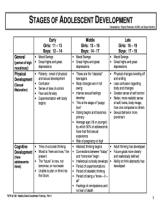Are You easy prey for a psychopath?
Psychopathy is a complex personality disorder, and individuals with psychopathic traits often have a range of behaviors that make them different from one another. While it's important to recognize and protect oneself from potentially harmful individuals, it's not accurate or fair to label anyone as "easy prey" for a psychopath based solely on personal characteristics or behaviors. Psychopathy is a clinical diagnosis and should be made by qualified mental health professionals.
That said, there are certain behaviors and traits that may make individuals more vulnerable to manipulative or predatory people, which could include individuals with psychopathic traits. Here are some factors that might increase vulnerability:
Trust and Empathy: People who are generally trusting and empathetic may be more susceptible to manipulation by psychopaths, who often exploit these traits.
Loneliness and Isolation: Isolation and loneliness can make individuals more susceptible to manipulation because they may be seeking connection and support.
Low Self-Esteem: Low self-esteem can lead people to seek approval and validation from others, making them more vulnerable to manipulative individuals who provide false praise and attention.
Lack of Boundaries: People with weak or poorly defined boundaries may have difficulty recognizing and protecting themselves from manipulation.
Insecurity and Uncertainty: Those who are unsure about themselves or their life path may be more easily swayed or influenced by someone who presents a compelling narrative.
Financial Distress: Financial vulnerability can make people susceptible to scams and manipulation, especially if they are desperate for financial relief.
High Risk-Taking Behavior: Individuals who engage in risky or impulsive behavior may be more likely to be drawn into harmful situations.
It's important to note that everyone has vulnerabilities and can potentially be targeted by manipulative individuals, including those with psychopathic traits. Protecting oneself from harm involves building self-awareness, self-esteem, and emotional intelligence, as well as developing strong boundaries, critical thinking skills, and the ability to recognize manipulative behavior.
If you suspect that you have encountered someone with psychopathic traits or have concerns about your vulnerability, consider seeking support from a mental health professional, counselor, or therapist who can provide guidance and tools to help you protect yourself and make healthier relationship choices.
Recognizing Vulnerability to Psychopaths
Psychopaths are skilled manipulators who are adept at identifying and exploiting vulnerabilities in others. Some common vulnerabilities that can make people more susceptible to psychopathic manipulation include:
- Empathy and compassion: Psychopaths are often able to gain the trust of others by feigning empathy and compassion. However, their expressions of empathy are often shallow and insincere.
- Need for approval and validation: Psychopaths are adept at playing on people's need for approval and validation. They may shower victims with compliments and praise in order to gain their trust and make them more susceptible to manipulation.
- Low self-esteem: People with low self-esteem may be more likely to believe the lies and deceptions of psychopaths. They may also be more likely to overlook red flags and warning signs.
- A history of abuse or trauma: People who have a history of abuse or trauma may be more vulnerable to psychopathic manipulation. They may be more likely to trust people who appear to be kind and understanding, even if they are not.
- A desire to help others: Psychopaths often target people who are motivated by a desire to help others. They may pose as victims or in need of assistance in order to gain the trust and sympathy of others.
Protecting Yourself from Psychopathic Manipulation
There are a number of things you can do to protect yourself from psychopathic manipulation:
- Be aware of the signs of psychopathy: Some common signs of psychopathy include lack of empathy, charm, impulsivity, and a grandiose sense of self-worth. If you notice these signs in someone you know, it is important to be cautious.
- Trust your gut: If something feels off about someone, it probably is. If you have a bad feeling about someone, it is best to avoid them.
- Set boundaries: It is important to set clear boundaries with people you meet. This will help to protect you from being taken advantage of.
- Do not be afraid to say no: If someone is pressuring you to do something you do not want to do, do not be afraid to say no. You have the right to say no to anything you are not comfortable with.
- Get to know someone before you trust them: It is important to get to know someone before you trust them. Do not give out personal information or make financial commitments to someone you do not know well.
Building Resilience and Awareness to Avoid Becoming Prey
There are a number of things you can do to build resilience and awareness to avoid becoming prey to psychopathic manipulation:
- Educate yourself about psychopathy: The more you know about psychopathy, the better equipped you will be to recognize and avoid psychopaths.
- Develop your critical thinking skills: Psychopaths are often skilled at using deception and manipulation. By developing your critical thinking skills, you will be better able to identify and challenge their lies.
- Build a strong support network: Having a strong support network of friends and family can help you to stay grounded and avoid being isolated by a psychopath.
- Take care of your mental health: Psychopaths can be very stressful to deal with. It is important to take care of your mental health by getting enough sleep, eating healthy foods, and exercising regularly.
- Seek professional help if needed: If you are concerned that you may have been manipulated by a psychopath, it is important to seek professional help. A therapist can help you to understand what happened and develop coping mechanisms.
Seeking Support and Professional Guidance
If you believe you have been manipulated by a psychopath, it is important to seek support and professional guidance. A therapist can help you to understand what happened and develop coping mechanisms. They can also provide you with support and guidance as you work to rebuild your life.
Real-Life Examples and Cases of Psychopathic Manipulation
There are many real-life examples of psychopathic manipulation. Some famous cases include:
- Bernie Madoff: Madoff was a Ponzi scheme artist who defrauded investors of billions of dollars. He was able to gain the trust of his victims by posing as a successful and trustworthy businessman.
- Ted Bundy: Bundy was a serial killer who murdered over 30 women. He was able to lure his victims in by posing as a charming and helpful stranger.
- Elizabeth Holmes: Holmes was the founder of Theranos, a company that claimed to have developed a revolutionary blood testing technology. Holmes was able to raise millions of dollars from investors based on false claims about the company's technology.
These are just a few examples of the many ways that psychopaths can manipulate others. If you are concerned that you may have been manipulated by a psychopath, it is important to seek help from a qualified professional.












